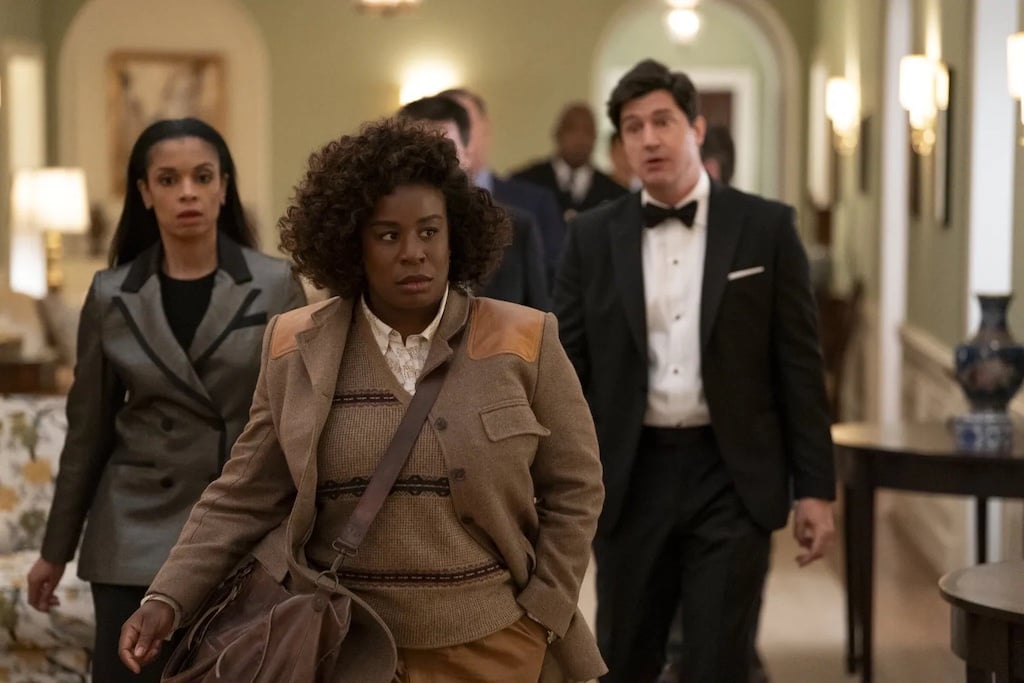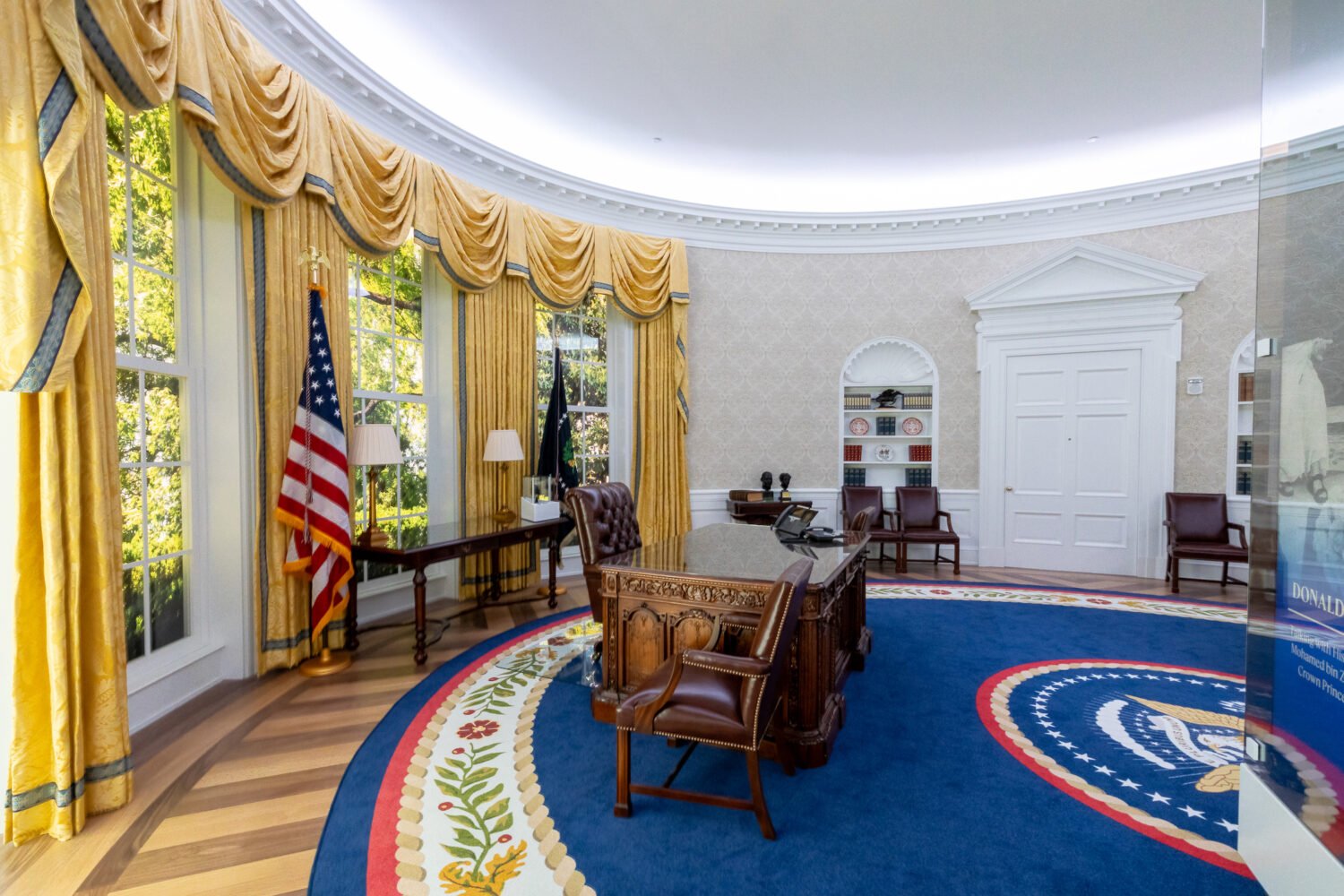From the looks of it, about the only people who were reluctant to help two top filmmakers on their movie about the raid that killed Osama bin Laden were the people who actually planned the raid and pulled it off.
All the other key players, from the Pentagon to the White House to the CIA were on board and eager to tell the Obama administration’s side of the story to Mark Boal and Kathryn Bigelow, who, the day after the raid in May 2011, set to work on Zero Dark Thirty, trying to get access to top officials at the Defense Department and the CIA, as well as in the secretive confines of special operators who planned and executed the mission.
The administration’s exuberant, occasionally giddy assistance to the filmmakers, who had previously collaborated on an Oscar-winning film about the war in Iraq, is documented in a Defense Department Inspector General report obtained and posted online by the Project on Government Oversight. It finds that Leon Panetta, who at the time of the raid was the CIA Director, revealed names of special operations personnel involved in the raid, as well as other information that was designated Top Secret.
Pentagon officials were also eager to assist the filmmakers and arrange meetings with people who helped plan the raid. In the course of these discussions, administration officials revealed the names of military special operators who were not supposed to be publicly identified, partly over concerns that they or their families could be targeted for retribution.
But in contrast to the Obama administration’s aggressive pursuit and prosecution of unauthorized disclosures of classified information and other leaks, apparently no action was taken against Panetta or the other officials who freely shared sensitive information with the filmmakers. Military officers thought operational security and protection of their forces should trump all. Political and policy level officials were not exactly indifferent to that concern, but they were keen to tell the administration’s side of this extraordinary story, and to ensure their bosses came off in the best possible light.
Among those pushing hardest to cooperate with Bigelow and Boal was Douglas Wilson, then the Assistant Secretary of Defense for Public affairs and the Pentagon’s top communications strategist.
Wilson leaned on Adm. Eric Olson, the Special Operations commander, to cooperate with the filmmakers’ research about the raid. Wilson noted that Panetta “wants the [Defense] Department to cooperate fully with the makers of the [bin Laden] movie.” Michael Vickers, the Undersecretary of Defense for Intelligence, was about to meet with the filmmakers and “want[s] to know what [to] say,” Wilson told Olson in an e-mail.
Olson said Boal and Bigelow could use a set of talking points that had been drawn up “to ensure accuracy and provide context to the movie project.” Then he reminded Wilson that one of his special operations planners, who had been involved in preparations for the raid, should “not be identified by name as having participated in any way.”
This planner, according to the inspector general report, apparently knew many of the details about the preparations for taking down bin Laden and how the raid unfolded. He was so involved that as negotiations with the filmmakers unfolded, the planner was seen as qualified to speak on behalf of Olson, as well as the commander of the elite Joint Special Operations Command, Adm. Bill McRaven.
Olson was especially sensitive to protecting the planner’s identity from public disclosure. And McRaven said keeping the names of all those involved in the planning and execution of the raid a “top aspect” of the mission. The Defense Department had provided “inordinate security” to the operators and their families, according to McRaven, and had gone so far as to brief them on whom to call if they noticed anything suspicious at their homes.
But at an interview in the Pentagon with Bigelow and Boal on July 15, 2011, Vickers gave the filmmakers with the name of that special operations planner. The next day, Boal e-mailed a public affairs desk officer at the Pentagon to “obtain access” to the planner.
Vickers and Wilson exchanged e-mails. “Very many thanks for this,” Wilson wrote, referring to his meeting with Bigelow and Boal. “Think they came away very happy” from the meeting. Wilson said he’d put the filmmakers in touch with Olson’s “key planner,” and that this “should complete for now their requests of DOD.”
Wilson exchanged a few excited emails with George Little, the Pentagon press secretary, who had also made himself available to Bigelow and Boal. “We’re going to the premiere of the Boal/Bigelow movie next year,” Little wrote.
“We’ll be hosting it :-),” Wilson replied.
Little, who was director of CIA public affairs at the time of the raid, said that Panetta hoped Al Pacino would play him in the movie. “That’s what he wants, no joke!”
“They will,” Wilson replied.
Panetta was portrayed in the film by James Gandolfini.
At the same time, that special operations planner was sending e-mails to Pentagon officials, and speaking with Vickers, about the meeting he was expected to have with Bigelow and Boal. The planner wanted to talk first with a DOD public affairs officer, who noted in an e-mail exchange that press accounts were circulating about administration officials possibly providing the filmmakers with special access as well as classified information about the raid, something the public affairs officer denied.
“We may want to let the dust settle a little,” the public affairs officer advised the special operations planner.
According to the planner, this was his last communication with the public affairs officer, and he never met with Bigelow and Boal.
But Boal did attend an awards ceremony at CIA headquarters on June 24, 2011, that recognized the efforts to track down bin Laden. DOD special operators were present, but not in a “cover status” that would have used a guise to protect where they worked and what they did, the report found. “No precautionary measures” were taken to keep Boal from identifying any of the operators.
It was at this ceremony that Boal was given another name of a DOD special operator who was involved in the bin Laden mission, the report states. This operator was not in a cover status, but the individual’s name was not supposed to be publicly revealed.
There were conflicting accounts of whether the awards ceremony was a small gathering or a large affair, and whether it was really all that sensitive. According to one attendee, special operators were present in uniform with their names visible on their uniforms.
But the DOD tried to stop Boal from attending, according to the report. A public affairs officer at the department claimed that Panetta’s chief of staff, Jeremy Bash, intervened and insisted that Boal come. Bash denied this, and said the decision to let Boal attend the ceremony came from discussions between the CIA’s public affairs shop and the filmmakers. (Little was the head of CIA public affairs at the time.)
At the event, Panetta gave a speech and “specifically recognized the unit that conducted the raid and identified the ground commander by name,” the report says. He also provided information designated Top Secret and Secret–the report doesn’t say what the information was.
Later, McRaven was personally introduced to Boal. He was “surprised and shocked” that a filmmaker was allowed to the ceremony at CIA headquarters, the report says. The event was closed to the press.
Ultimately, no classified tactics, techniques, or procedures were revealed in the back and forth between Obama administration officials and the filmmakers, the report found. And McRaven and his subordinates said they weren’t concerned that they had been.
Still, the apparent lack of response by the administration to keep sensitive information from being publicly revealed stands in contrast to the aggressive attempts to staunch leaks of other secrets and details about intelligence and military operations. The episode also underscores the distinction between authorized disclosures–which these all appeared to be–and unauthorized ones.









